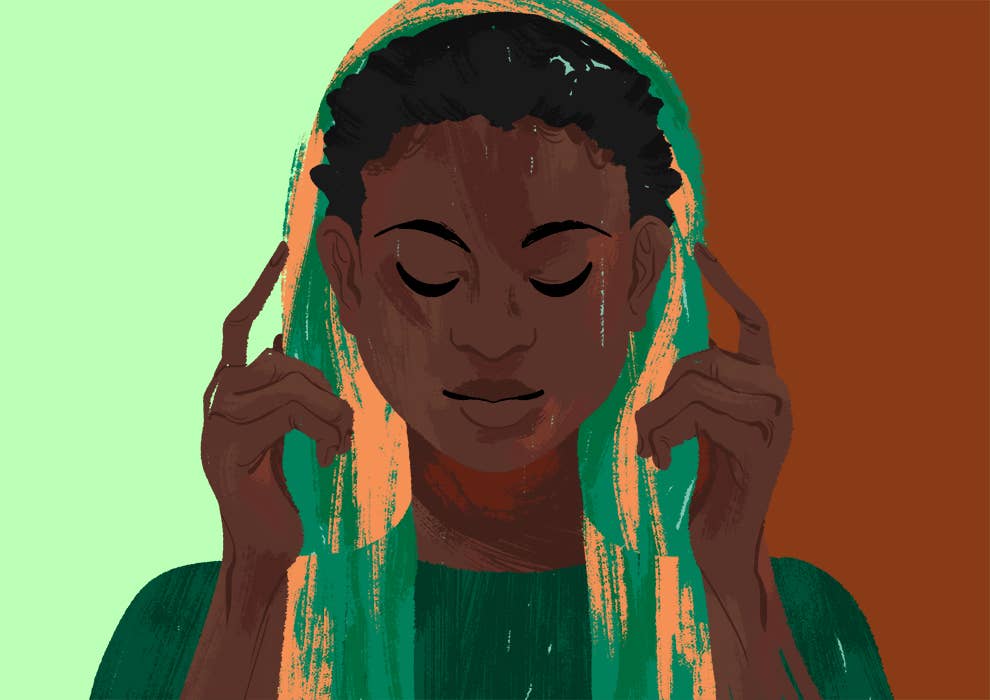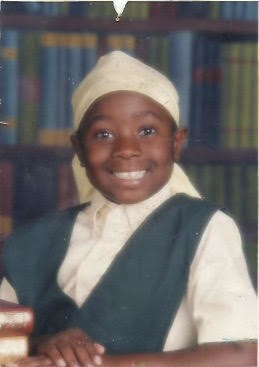
A few months ago, I found myself on my masjid’s Facebook page and saw a familiar face and name. His memory was being honored for his life’s sacrifice to our Atlanta Muslim community. While I knew his wife well — she was my PE instructor for a few years — I knew him less well until recently.
About a year or so ago, I started receiving emails from him. In them, he would ask me (and other alumni) to help keep open the small K-12 predominantly African-American Islamic school I had attended for 13 years of my life. I couldn’t have possibly known this email would be my last call to action from him:
As salaam alaikum!
Please, let’s demonstrate support for our bake sale (just like we support - “Girl Scout Cookies…”).
Please click on the link below and send to others for their support.
I thank Allah for your support and encouragement.
I’m not sure how he got my email address, but what I do know is now there’s one less person to remind me that my school and community of 22 years needs help to keep from disappearing and becoming irrelevant to those for whom it used to mean everything. I didn’t “click on the link below” or “send to others for their support.” I told myself that I wouldn’t forget to help my community, that I was just putting a pin in it because I had other things to do — all the while knowing that I wouldn’t return until the next email or visit home
Even though I never answered the emails, I carry a specific burden. I must retell the story of my community, purposefully inserting it into immigrant Muslim spaces where it’s either unfamiliar or where it feels our history has been marked as irrelevant to the broader narrative of Muslims in America. I serve as a constant reminder that people within my community — people like my mom — exist, and I want to make sure I tell their story right.
It’s no secret that Islam found the projects or vice versa; however it got there, it hasn’t managed to leave yet.
While many of the pioneers in my community joined the Nation of Islam in the early ’50s and ’60s, my mom was part of the second wave of African-Americans to abandon the religion of their parents and exchange their last names for an X. Her X would only be temporary, though, because in 1975 — a year after her conversion — Elijah Muhammad, or, as my mom always corrects me, “the honorable Elijah Muhammad,” died. His son and successor, Imam Warith Deen Muhammad, renounced both the deification of Nation of Islam founder Wallace Fard Mohammed and the belief that his father was a messenger of God. And he transitioned thousands of Nation of Islam members into Sunni Islam.
I asked my mother to tell me about her conversion for my podcast, because after reading and hearing so many conversion stories from the works of academics like Aminah McCloud and Jamillah Karim, even my mom’s story starts to blend. I sometimes forget that each and every one is a unique experience leading to a different outcome. I would often read commentaries and conversion stories of African-American Muslims and draw the conclusion: “During a time of great upheaval, African-Americans were looking for an alternative and Islam was presented as one.” That’s not a false narrative, but for my mother, what is far more complicated and closer to accurate is this: In 1974, 22-year-old Brenda Ann out of the Liberty City projects of Miami was searching for peace. She managed to find that peace, that solace, and in a bonus package, she found love, too.
It’s no secret that Islam found the projects or vice versa; however it got there, it hasn’t managed to leave yet. My mom’s journey to Islam began with the brothers — wearing their bow ties, carrying their Muhammad Speaks newspapers and bean pies in one hand and fried whiting in the other (it’s amazing what two hands can manage to hold). They would walk through the Liberty City projects at least twice a week. The cost of those bean pies was more than monetary; you also had to listen to what they had to say. But it wasn’t wholly unwelcome: My mom didn’t mind chatting, particularly about the “do-for-self” guides to healthy living, and the fight for justice. But these weekly visits and conversations were not enough to compel her to join the Nation.

One day, one of those “brothers” from the projects saw her waiting for the bus and asked if she needed a ride. She’s usually embarrassed to tell me this part. She was on her way to Miami Dade Community College, where she was pursuing a degree in stenography — a career she would later abandon, conflicted by the “daily routine of writing black men into jail cells.” She got into his old point-A-to-B car, and the rest was written.
Her first Ramadan, fondly remembered as “the longest summer ever,” came the next year, an affirmation that she had found her peace. When I asked her about Ramadan later, after the recording had ended on the podcast, she told me she had never experienced anything in her first 23 years that had brought her closer to herself, her community, and, ultimately, God.

With a name and birthplace like mine, there’s no escaping questions about my origin story in black and Muslim circles.
Like anyone who is deemed shy of meeting the mark of what it means to be American, I often get the question “But where are you really from?” My first response is always “Here.”
If the answer does not seem to satisfy, I give them a response that makes me cringe and I later regret: “Oh, we’re just ‘regular black’ from Miami and Atlanta.”
That answer is a lie, because there's nothing “regular” about being black in America. There's nothing “regular” about how my family ended up in Miami from the backwoods of Georgia and Mississippi. There’s nothing “regular” about ending up with the name Ikhlas Saleem and growing up in the streets of Decatur. And there’s certainly nothing “regular” about having attended the Mohammed Schools of Atlanta. But I also know this correct answer is the longer, more complicated story to tell and there’s not enough time in the back of a cab, or in the line for iftar, or in the time between cutting my leg of lamb and me leaving the halal market, to tell it.
I’ve inherited a legacy and community where on paper, I should fit into many groups — black, Muslim, black and Muslim. In practice, I am not always welcomed into them, and if I am, people aren’t always sure exactly how I fit. While my mother helped pioneer what it means to be Muslim in America, I hold the responsibility of maintenance. There was a time when being Muslim in America meant being black, but in 2016, I'm the anomaly. I navigate a landscape where I am as likely to remind white Americans that Black Lives Matter as I am to explain it to South Asian and Arab Muslims. I don't have to do these things, but I should, right? Even if it’s not true, I feel that the sacrifice of people like my mother and those within my community warrants it.
“When you get to college, you’ll have to choose—black or Muslim.” I chose a third way: the hybrid.
In college, where so many people are juggling multiple cultural identities, I felt mine collide. A friend’s older sister told her as she prepared to leave the black Muslim Mecca, or Atlanta as it is better known, “When you get to college, you’ll have to choose — black or Muslim.” She chose the former. I followed her a year later, and though I didn’t have the benefit of this advice beforehand, in my first few weeks I felt the pull between the Muslim Students Association and the Black Students Association. I chose a third way: the hybrid.
I gave up a part of myself to hang with each group that made up my identity. I would hide from my Muslim friends on my way to parties. I pretended to be an international Ghanaian student for at least three years of college. I figured it was easier to just drop some parts of myself in exchange for the simplicity of a singular identity, depending on the circle. I'm good at being whoever I think people want me to be. Always have been.
By my second year of graduate school, I had burned myself out playing chameleon. I had mastered the ability to change so much so that I had forgotten my original formation. After finishing graduate school, I did not have a job. So I went back to Atlanta — to work on reminding myself of who I was, what I valued, and where I came from.

It might seem silly that I needed to learn how to be myself, parsing out what I’ve created out of convenience from the parts I’ve always known to be true — only to realize that I’ve always been myself. Like Brother Malcolm, like all of us, I’m living a life of reinvention to some degree. I won’t always like, or sometimes even recognize, all the personalities I’ve had to create.
Like Brother Malcolm, like all of us, I’m living a life of reinvention to some degree.
Going home seemed like a great idea until I was there and remembered that I was no longer 8 years old, sharing the same views as my mom and siblings, who had not left Atlanta. The very space in which I thought I could be myself was, at times, the most difficult. I would go to Jum’ah every Friday, wondering why it didn't evoke the same emotion and furious note-taking it once had. I tried to find friends, only to decide that some were “too religious” based on Facebook rants about “society and its demise.” And others I determined “not religious enough” because of stories served up through the grapevine. I wanted to help my community but wasn't sure how and was annoyed that transplants knew my community better than I did.
Eventually, all roads led to me: I was frustrated that I could no longer as easily connect to a community that my mother and other pioneers had worked to build and maintain. I thought I could be OK with that disconnect, but what I could not and still haven’t been able to shake is the obligation that has been passed down. I’ve spent a lot of time telling my mom’s story, but not enough telling my own. Maintaining a legacy takes work — it’s time-consuming, guilt-inducing, and frustrating —but the rewards extend beyond me, beyond my masjid. I've found comfort in knowing that I exist where I am, always between communities, always between places. I’ve found home in the yearning.

